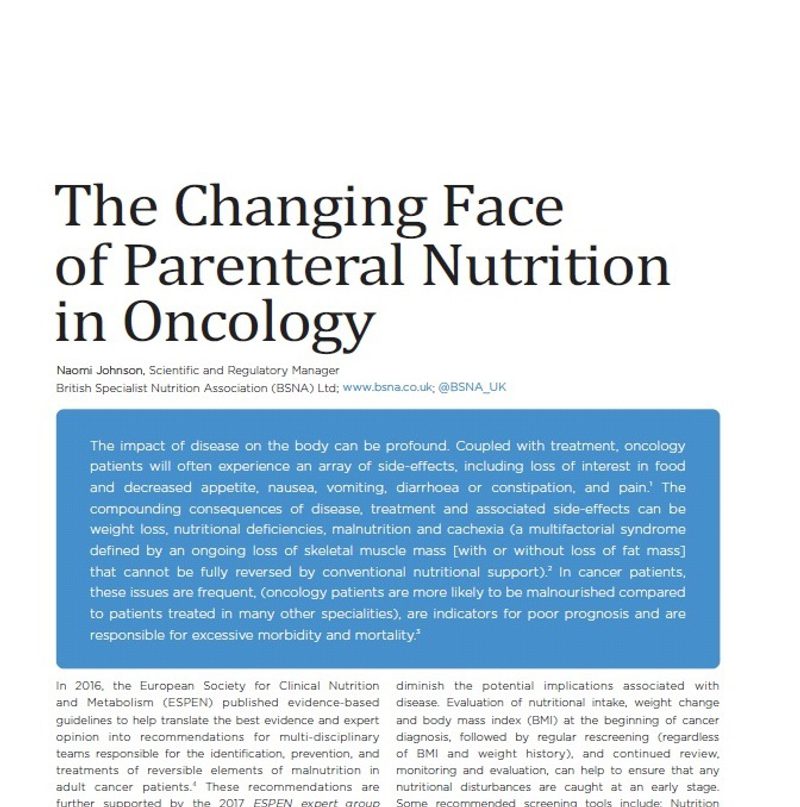
Posted on: May 31, 2018
The Changing Face of Parenteral Nutrition in Oncology
The impact of cancer, and necessary treatments, can have a profound and varied physical and psychological impact on the patient. Malnutrition and nutritional deficiencies will often present, and have been shown to negatively impact the health and overall outcome of the patient. Nutritional screening and malnutrition identification is therefore a fundamental and primary step in the care pathway of the patient. For this, and in accordance with NICE, it is essential that a multi-disciplinary team is involved to help minimise risks and complications (although these will vary according to the patient’s condition and circumstances).[1]
Choosing the appropriate nutritional intervention can play an important role in the patient’s prognosis, wellbeing and overall quality of life, either on the road to recovery or for end of life. Parenteral nutrition is an effective form of nutrition support, which can play an important role in patient care. Continued research will help to underpin and strengthen current recommendations to ensure that parenteral nutrition is offered under the correct circumstances, to those who are most likely to require it and that healthcare professionals have the necessary guidance and support in this decision making.
To view the full article click here
[1] NICE Guidelines. Nutrition support for adults. Oral nutrition support, enteral tube feeding and parenteral nutrition. February 2006